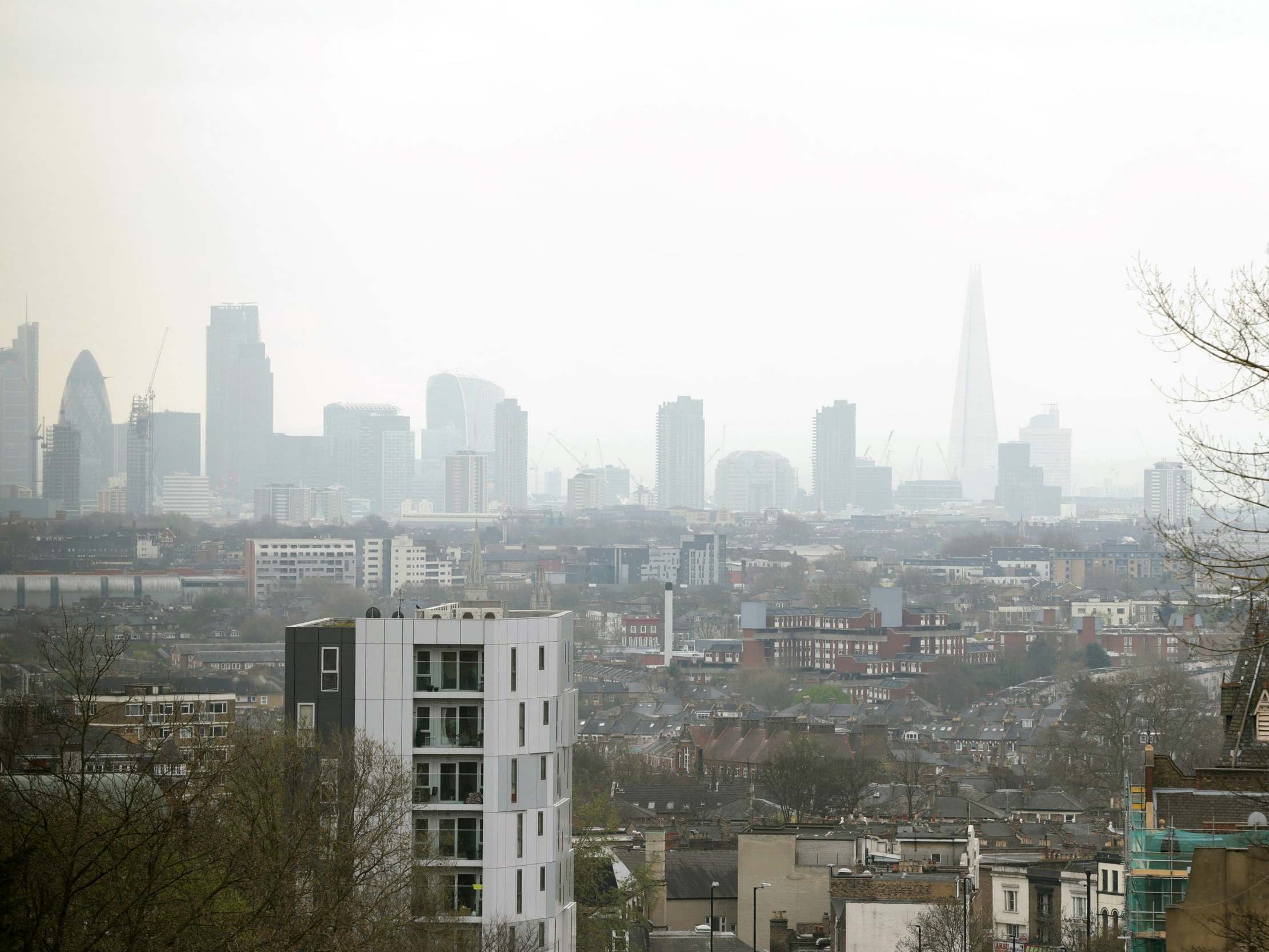Climate change: Greenhouse gas levels hit record high ‘with no sign of slowdown’, UN warns
Report finds 43 per cent surge in warming effect since 1990

Your support helps us to tell the story
From reproductive rights to climate change to Big Tech, The Independent is on the ground when the story is developing. Whether it's investigating the financials of Elon Musk's pro-Trump PAC or producing our latest documentary, 'The A Word', which shines a light on the American women fighting for reproductive rights, we know how important it is to parse out the facts from the messaging.
At such a critical moment in US history, we need reporters on the ground. Your donation allows us to keep sending journalists to speak to both sides of the story.
The Independent is trusted by Americans across the entire political spectrum. And unlike many other quality news outlets, we choose not to lock Americans out of our reporting and analysis with paywalls. We believe quality journalism should be available to everyone, paid for by those who can afford it.
Your support makes all the difference.Levels of atmospheric greenhouse gases have reached another record high, “with no sign of a slowdown, let alone a decline”, the World Meteorological Organisation (WMO) has warned.
Despite pledges made under the Paris Agreement to combat climate change, concentrations of carbon dioxide, methane and nitrous oxide all surged by higher amounts in 2018 than average for the past decade.
Levels of CO2 – the main gas driving global warming – reached new highs of 407.8 parts per million (ppm) in 2018, up from 405.5ppm the previous year, a report by the UN body shows.
This concentration is now 47 per cent higher than before the Industrial Revolution began in 1760, when CO2 levels were around 280ppm.
“We need to translate the commitments into action and increase the level of ambition for the sake of the future welfare of mankind,” said WMO secretary general Petteri Taalas.
The last time Earth experienced comparable concentrations of carbon dioxide in the atmosphere was three to five million years ago, when temperatures were 2C to 3C warmer and sea levels were 10-20 metres higher than today, Mr Taalas said.
Human activity is increasing greenhouse gas emissions, which are driving up these gases’ concentration in the atmosphere, where they have a warming effect on the Earth’s climate.
Since 1990, there has been a 43 per cent increase in this warming effect by long-lived greenhouse gases, the report said.
According to the report, CO2 contributes towards 66 per cent of this warming effect, with methane at 17 per cent, and nitrous oxide at six per cent.
The report focuses on concentration levels – which represent what remains in the atmosphere after a complex system of interactions between the atmosphere, land, trees and oceans.
Trees and oceans each absorb roughly a quarter of the total emissions, but this effect is already slowing down in the latter as they grow increasingly warmer.
In addition, global greenhouse gas emissions rose again in 2018 at the fastest rate in seven years, according to a preliminary report by the Global Carbon Project.
The resultant heating of the planet is driving impacts such as melting glaciers and sea level rise, more extreme droughts, heatwaves and storms, also posing a threat to food security, water supplies and wildlife.
If our current emissions trends continue unchecked, many researchers predict mass displacement on an unprecedented scale.
Large swathes of North Africa and the Middle East would likely become uninhabitable due to scorching heat and drought, with sea level rises affecting many of the world’s most populous cities.
The WMO warned that despite agreements made under the Paris Agreement, global emissions are not estimated to peak by 2030, let alone by the 2020 date that scientists have said is necessary to curb dangerous climate change.
“The findings ... point us in a clear direction – in this critical period, the world must deliver concrete, stepped-up action on emissions,” said the UN Environment Programme’s executive director Inger Andersen.
“We face a stark choice: set in motion the radical transformations we need now, or face the consequences of a planet radically altered by climate change.”
Additional reporting by PA
Join our commenting forum
Join thought-provoking conversations, follow other Independent readers and see their replies
Comments